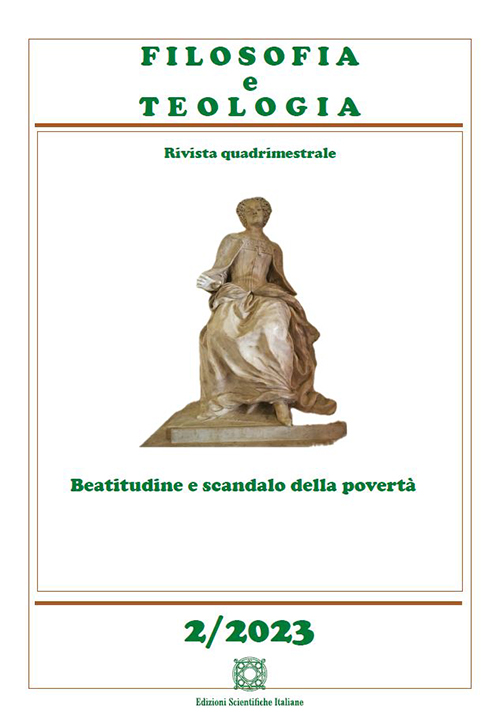Filosofia e Teologia XXXVII, 2 (2023), Beatitudine e scandalo della povertà, pp. 320-335
Nel 1976 usciva in Germania lo scritto di Klaus Hemmerle, Thesen zu einer trinitarischen Ontologie con lo scopo di rinnovare la teologia e la filosofia attraverso la chiave ermeneutica dell'ontologia trinitaria; un nuovo approccio frutto di un'esperienza spirituale cristiana che, partendo dall'evento della rivelazione, apre all'unità personale e interpersonale e alla relazione trinitaria. Con le Tesi, in dialogo con il pensiero di H. U. von Balthasar, dà avvio ad una riflessione che è continuata nel corso degli anni successivi, offrendo nuovi aspetti e approfondimenti che trovano un'ampia sintesi nei primi due volumi del Dizionario Dinamico di Ontologia trinitaria. Le sue tesi sono la ricerca di nuovi accessi esistenziali e teoretici al mistero della Trinità in cui convergono pensiero, parola e vita e, in ultima analisi, spiritualità, teologia e filosofia. È la ricerca di una convergenza all'unità del sapere fondata su un ripensamento dell'analogia entis che dà significato all'ontologia trinitaria, perché rinnova la relazione tra l'Uno e i molti e il rapporto tra il Creatore e le creature. Il saggio analizza l'ontologia trinitaria nella storia del pensiero, in particolare in Agostino, nel pensiero moderno e negli sviluppi della teologia del novecento.
Parole chiave: ontologia trinitaria, agápe, analogia entis
In 1976, Klaus Hemmerle's Thesen zu einer trinitarischen Ontologie was published in Germany with the aim of renewing theology and philosophy through the hermeneutic key of trinitarian ontology; a new approach resulting from a christian spiritual experience that, starting from the event of revelation, opens up to personal and interpersonal unity and the trinitarian relationship. With the Theses, in dialogue with the thought of H.U. von Balthasar, he initiated a reflection that continued over the course of the following years, offering new aspects and insights that find an ample synthesis in the first two volumes of the Dynamic Dictionary of trinitarian Ontology. His theses are the search for new existential and theoretical accesses to the mystery of the Trinity in which thought, word and life converge and, in the final analysis, spirituality, theology and philosophy. It is the search for a convergence to the unity of knowledge based on a rethinking of the analogia entis that gives meaning to trinitarian ontology, because it renews the relationship between the One and the many and the relationship between the Creator and his creatures. The essay analyses the trinitarian ontology in the history of thought, particulary in Augustine, in modern thought and in the developments of twentieth-century theology.
Keywords: trinitarian ontology, agápe, analogia entis,

